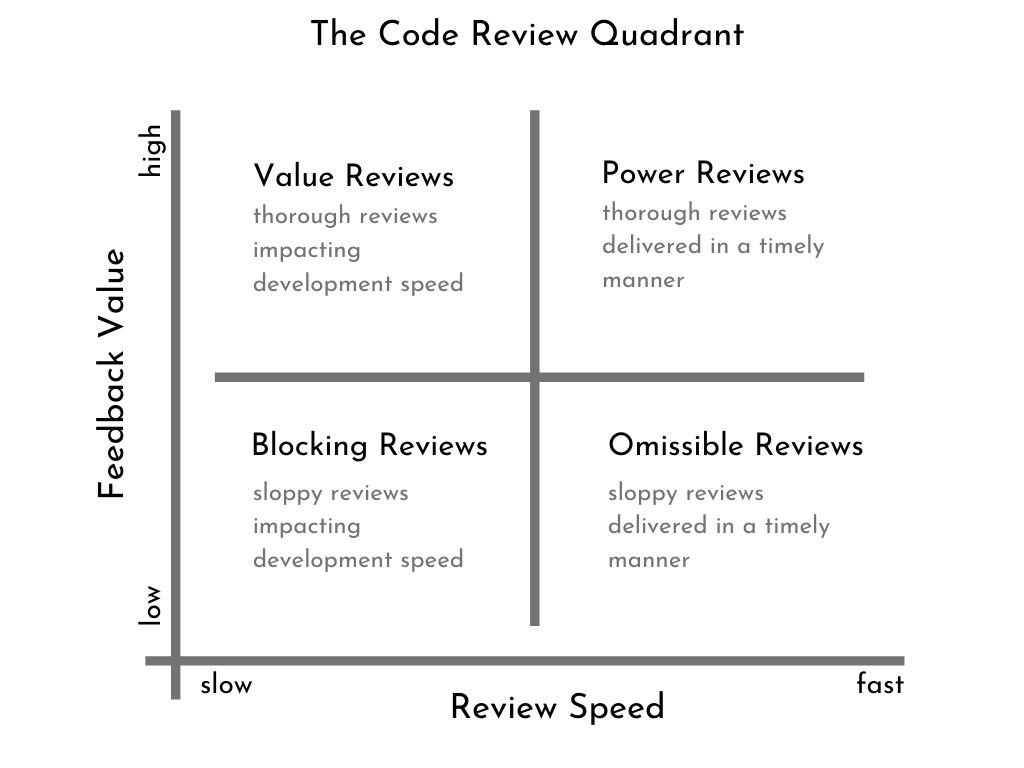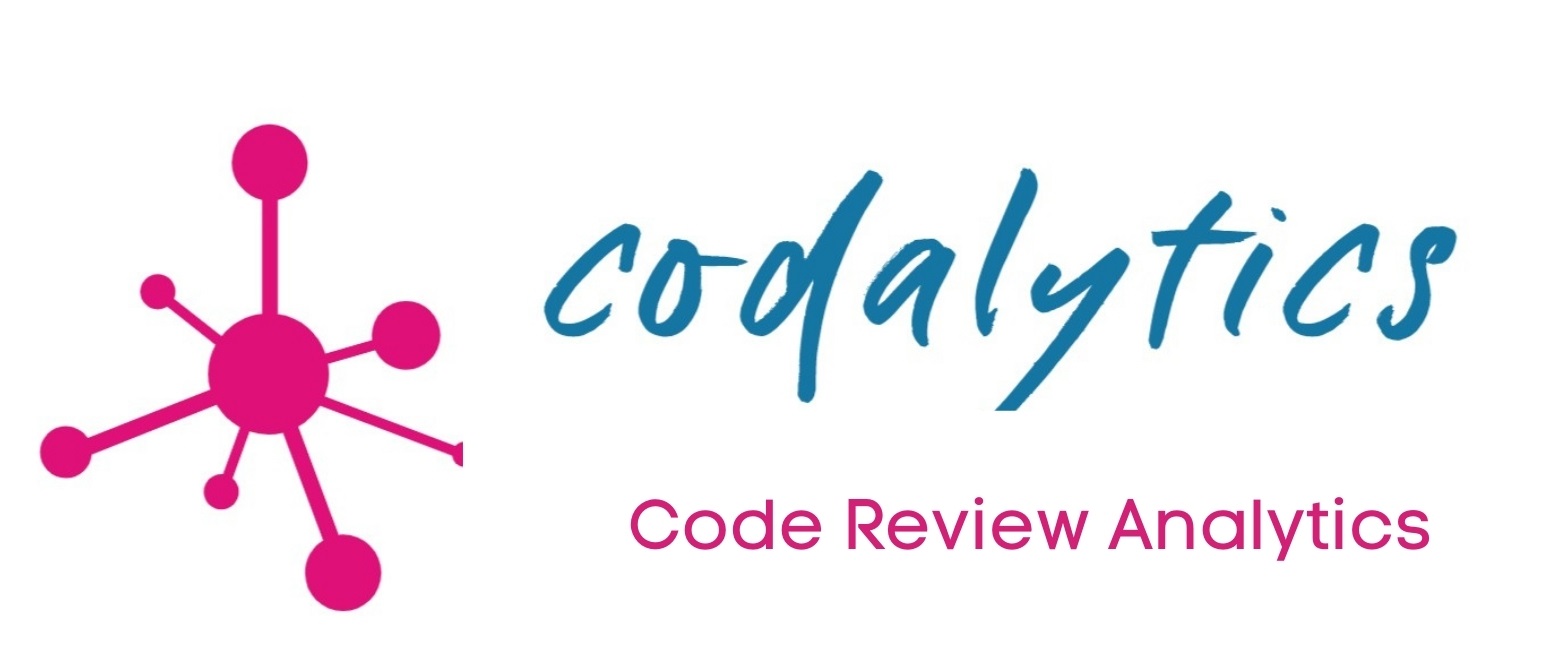3 Perspectives - Multiple Insights
Codalytics shows you time, size and
participation rate
for your code reviews.

Participants
Understand the how engineers participate during code reviews. The tools helps to see code review
approval practices, knowledge flows, and helps to identify "rubberstamps", i.e., code reviews
that haven't been thoroughly reviewed.
i.e.

Code Review Speed
Understand how long do code reviews take from start to merge, and how long code reviews with no
interaction take. The tools also helps you identify blocked PRs, and track them over time.

Code Review Size
Research has shown that code review size has a significant impact on code review
speed, and feedback quality. Codalytics shows you how
review size impacts knowledge sharing, and
code improvements based for your engineering team.
Want to see it in action?
Join the waiting list to become an early beta user.





